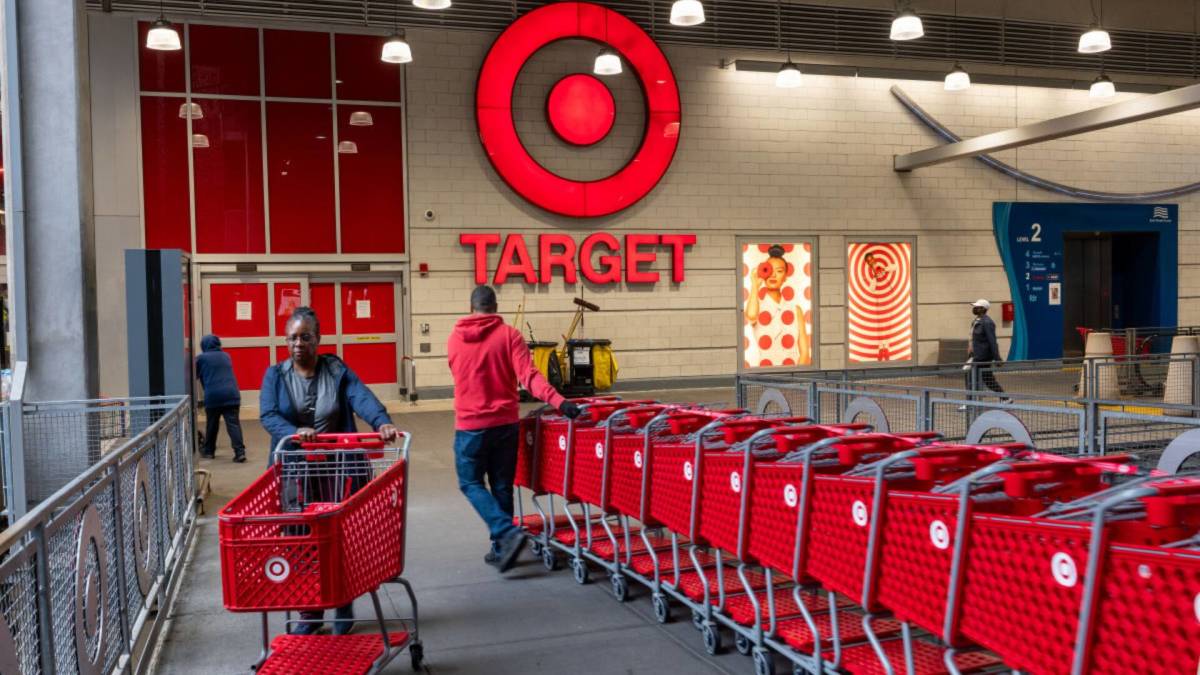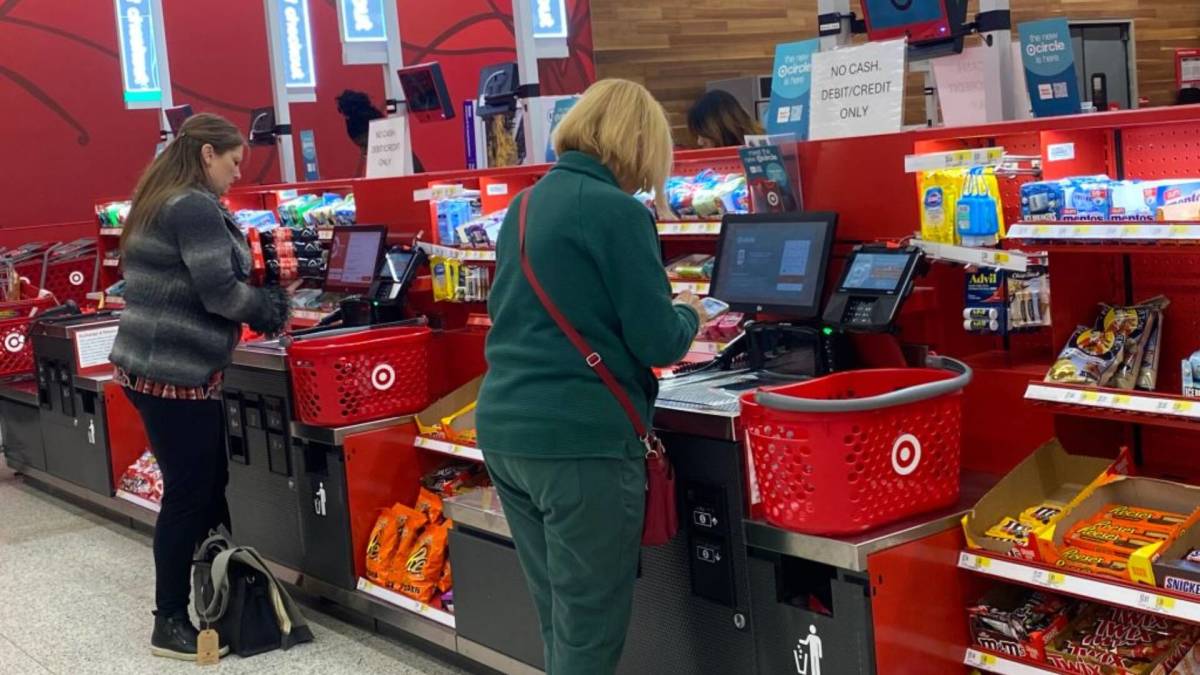Target launches solution to big self-checkout problem for shoppers
Target's self-checkout stations are getting a major upgrade ahead of the holidays.

Target’s (TGT) self-checkout machines have been a source of controversy over the past few years, like they have for many other retailers,
Last year, Target quietly began reducing self-checkout availability hours in select stores. This unintentionally caused longer lines at traditional checkout lanes, which frustrated customers.
The move came after Target closed nine stores in four different states in 2023 due to retail theft threatening the safety of workers.
In March last year, after receiving complaints about long checkout lines, Target debuted Express Self-Checkout lanes with limits of 10 items or fewer at most of its stores nationwide.
“Total transaction times have improved nearly 8% across both our self-checkout stations and our traditional, staffed lanes,” said Target in a press release earlier this year. Image source: Universal Images Group via Getty Images
Target makes a big change to self-checkout machines
As Target tackles self-checkout pain points, it has decided to address another problem brewing at these stations.
The retailer recently revealed that it has been rolling out new self-checkout technology nationwide that caters to shoppers with disabilities, specifically those who are blind or are visually impaired.
The updated self-checkout stations have braille, high-contrast button icons, a headphone jack with adjustable volume controls, a custom tactile controller, physical navigation buttons with a dedicated info key, and a single audio stream during scanning and payment, according to a recent Target press release.
Target’s new accessible self-checkout technology is the first of its kind in the country and was developed in partnership with the National Federation of the Blind.
Related: Target stores will soon undergo big changes as shoppers pull back
In a recent interview with FOX Business, Target Senior Manager of UX Accessibility Steve Decker, who is blind, said that blind customers can plug wired headphones into the adaptive controller attached to the machine and will be guided by audio prompts when scanning items and making payments.
"The controller acts like a tactile keypad with volume up and down buttons. Directional arrows and then a center button to make selections, as well as a dedicated info button and a back button to escape out of things," said Decker in the interview with FOX Business. "All of that drives a screen reader, which is just software that reads what's on the screen through audio prompts."
He also said that the company’s rollout of the new technology will be “aggressive.” Target began introducing these updated self-checkout stations in over 200 stores starting in May, and by the end of the year, the machines will be present in nearly all of its stores. A few hundred more will be updated with the technology in early 2026.
"There's not a lot of accessible self-checkouts really in the country that we're aware of today," said Decker. "And so it's a really unique solution. Often, you know, blind people, folks with low vision might have some assistance shopping, but the self-checkout portion is not something we've been able to do."
Target bets big on holiday shopping to fix low sales
The move from Target comes right before the holiday season, showing that the company is putting its best foot forward to attract shoppers.
Earlier this month, the retailer said it would expand its next-day delivery service to make holiday shopping easier.
By the end of October, Target customers in 35 top U.S. metro areas will be able to have their online orders delivered within the next day.
Target’s bold preparation for holiday shoppers comes after it revealed in its second-quarter earnings report for 2025 that its comparable store sales dropped by almost 3.2% year-over-year.
More Retail:
- Temu makes bold move to slow down fleeing customers
- Lululemon CEO raises red flag about customer behavior in stores
- Home Depot seals billion-dollar acquisition to win back shoppers
Also, recent data from Placer.ai found that foot traffic in Target stores declined by 3.1% year-over-year during the quarter.
As Americans battle inflation, tariffs, and other economic challenges, many plan to reduce their holiday spending this year.
According to a new survey from YouGov, sales events such as Black Friday and Cyber Monday aren’t exempt from this consumer trend.
The survey found that 32% of Americans will spend less this holiday season due to tariffs, while only 8% expect to spend more.
Also, 22% of Americans plan to start their holiday shopping earlier than usual to dodge rising prices, while only 14% say they’ll delay shopping in hopes of better deals.
“This year’s Black Friday and Cyber Monday are about more than deals,” said Ashley Brown, senior director of account management at YouGov, in a statement to TheStreet. “They are a barometer of how Americans are navigating uncertainty. Shoppers are signaling they want to buy earlier, spend less, and shop with values in mind. The sharp turn toward ‘Made in USA’ products reflects the pressure today’s consumers feel as they head into the holiday season.”
Related: Walmart loses $400 million from unexpected problem in stores
What's Your Reaction?




















































